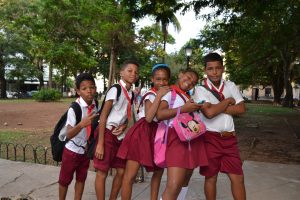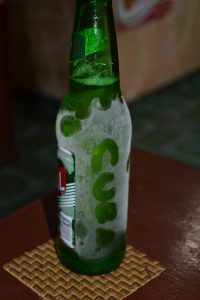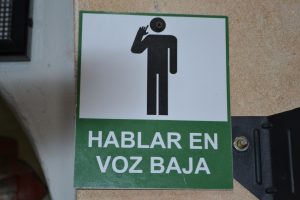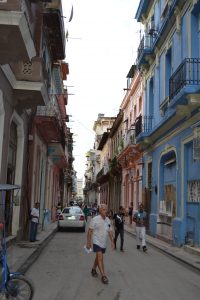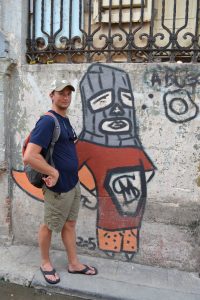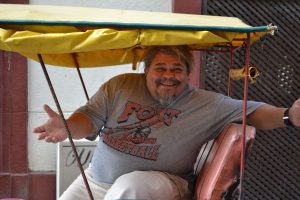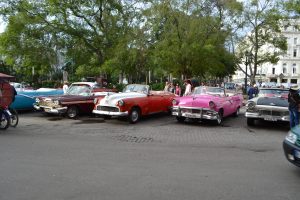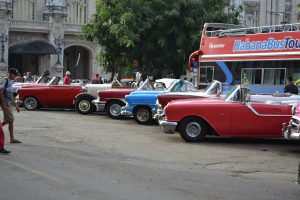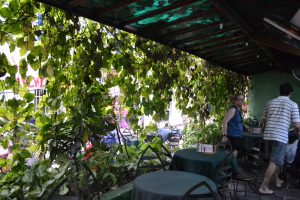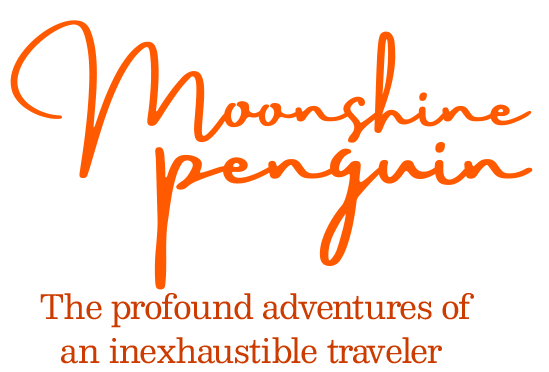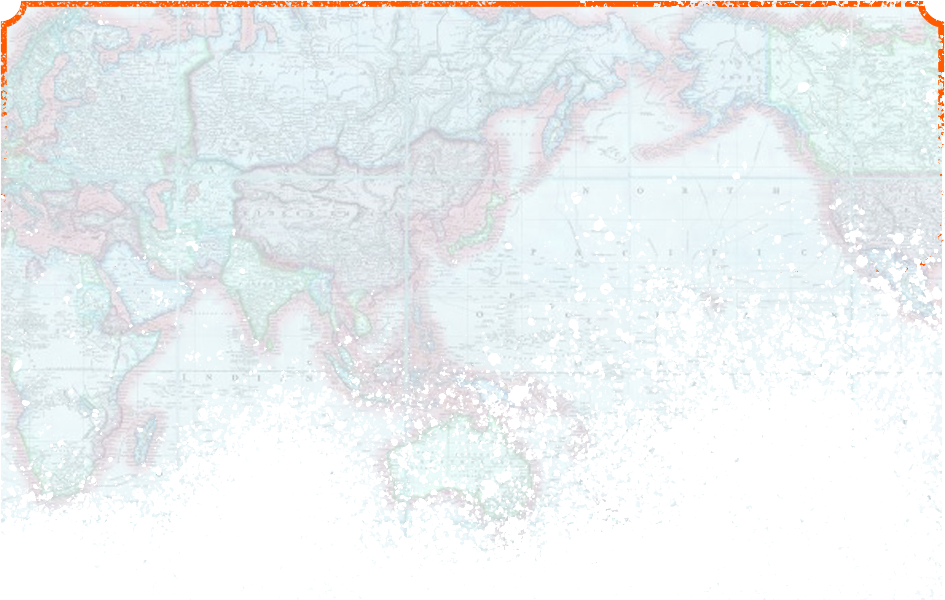
10Cuba. Finding common ground.
In transmuting our raw experiences in Cuba into stories, I have changed some names and events in this or future posts about the country. I do so with respect to you, the reader, and to protect the people we found there, who otherwise could not have told us what they did.
***
Customs was a breeze. After I had rushed to put our cabin back in order a few of them came aboard, took a quick glance around, and ignored the cat, who had come alive once the rocking stopped and was extremely and vocally unhappy about being stuck in the cupboard. One of the custom agents (a doctor) was a pretty, if vastly overdone, woman of about thirty. She wore an impeccable white suit with huge gold bangles on each wrist and huge gold hoops in her ears. Her sunglasses had gold across the top. Her nails were cherry red and so long she had to hold her pen awkwardly. She spoke decent English, which, we were grateful for after such a long emotionally and physically exhausting sail through the gulf stream. She asked if we had fevers and I saw Bill look at Adam, who had been throwing up halfway there. She pointed a laser at each of our heads and we were cleared. They took our pictures, checked our passports, and, with parting smiles, welcomed us to Cuba.
When we got to the space on the big concrete peninsula that would be ours for the next two weeks, two more people wanted to come aboard. The agricultural guy, with his clip board and his kind face, eyed our bananas for a second and then, wringing his hat in his hands, sheepishly asked for a tip for his “large ailing family.” Bill gave him a five dollar bill, which was the smallest bill he had, and immediately regretted it because we were told that if we gave them anything they would send others. Luckily this was not the case this time. The dockmaster, a charismatic, if slightly inappropriate, older gentleman named Jóse, with a memorable salt and pepper mustache, a husky voice and a white shirt that strained to contain his large jolly belly, asked for throat lozenges. As the sun sank into the sea, I dug around in our medicine bag (thank you Chelsi) and actually produced some — with a warning about their age. He thanked me and would let me know the progress of his sickness every time I saw him for the rest of our time in Cuba. He was a very helpful, jovial man, and explained things to us for far longer than was necessary.
Even though we were utterly exhausted from our trip through the gulf stream, we found a second wind because we were also extremely hungry. It had been impossible to eat while sailing for our lives. And to be honest, though now it seems crazy that we didn’t go straight to bed when the boat stopped moving, I could tell we all wanted to see at least a little something of this elusive and mysterious country we weren’t really supposed to be in.
We walked into town and were swiftly denied food by a couple high school girls. With their heads pressed together they giggled behind their collective hands at our white skin and funny language. They refused to take our American dollars but banks were closed which left us no way to get Cuban pesos. They would not feed us, even though the sandwiches we wanted were the equivalent of forty cents and, becoming desperate, Bill had offered them a twenty.
It felt like I had been run over by a truck. Every bone in my body tingled with weakness, Every muscle cramped tightly, and every bruise throbbed painfully as we dragged our empty stomachs back to the Talisman. When we got there I opened three cans of soup, which we wolfed down and then threw ourselves in bed and slept like the dead for twelve hours.
***
The next morning we got up, more or less recovered from the trauma that was the gulf stream and ambitiously ready to take a public bus to the city to see what we could see. The bus system proved more confusing than we were avaricious at that time, so eventually we took a cab, a blood red, ‘57 Thunderbird.
Things I wrote down in that first taxi ride:
The skin of the people is more variegated and their noses are thinner but the buildings made entirely of concrete, the dark skin, the smells, the sounds, the animals, this is the Philippines.
The people are either really young looking or really old looking. There isn’t much in between.
If people were inherently grateful instead of greedy, communism would be an amazing way to live. But historically, it does not work. Though, as we are currently discovering, pure capitalism doesn’t work either.
Concrete is not a forgiving material to make buildings out of.
The cars really give the whole place a sweet antique vibe.
Nothing says third world like hundreds of dogs, and cats with no tails, running around.
At one point in the cab Bill told me to write; “Bill’s first impression of Cuba: confusion upon confusion.” First we couldn’t exchange money because we didn’t have our passports, so we had to get the bus driver to do it. Then we couldn’t figure out the buses because no one spoke English and the money… Jesus. Not having traveled much outside of the country Bill would be the most culture shocked of the group and I loved getting to see it all through his virgin eyes.
Very few people spoke English, and we would cling tightly and for as long as possible to the ones who did. Because Cuba looked so much like the Philippine islands that I am so intimately familiar with, I couldn’t help but translate everything in my head into Visayan (a Filipino dialect) before then translating it into the sad few Spanish words I know (made sadder when you realize I took 10 years of it in school). If I didn’t know the word I wanted sometimes I would try in Visayan anyway, as it is a [very] bastardized version of Spanish. Once it even worked.
“Hours one through three; figure out money.” -Bill
The money is especially confusing. They have a local currency and a tourist currency. They actively do not want tourists to get their hands on the local currency. Of course we did and because of this we lived much more inexpensively.
Note; Adam explains the currency in detail at the end of this post.
We got dropped off at a café and the boys had their first, of many, Cuban coffees and I had tea. There was a band playing and singing salsa music which completely charmed and energized me. One of the overwhelming things I will always remember when I think of Cuba is the music. Which was always live, prevalent, and excellent.
After that, we walked. We took in the architecture, the noise, the cars, the smells, the people, and the history of Havana. As the sun was hanging more West than East, we came upon a place called Bar Rekin and decided to have some Cuban Rum.
The bulk of the woman at the bar turned around when we entered and when she saw us her face cracked open in a huge smile, showing all of her huge white teeth, but for a slightly browned one in front, that stuck out from the rest of her face. She was a deep beautiful chocolate color. She had a tiny gold bow in her inch long curls and happy silver eyeliner around her eyes. Her cheeks sagged slightly with a life that was harder than it could have been, but when she smiled it was with her whole body and suddenly you wanted to charades with her forever.
She motioned for us to sit at the bar with her. There weren’t any other patrons. The afternoon sun slanted in through the windows and showed the dust particles dancing in the air. The boys took their hats off, put them on the bar and we sat, already more well mannered than we normally are and grinning like idiots just being in her presence.
We pointed at the Rum (Ron) and she poured us three shots and then we asked for cervesa as well. Of course we all knew the word for beer. Bill pointed from her to the bottle. With her great big smile firmly in place she immediately complied, poured one for herself and we all downed our shots together.
Adam and I in turn pointed to ourselves and said our names, then Bill said, “mi nombre es Bill”… Show off. She touched her breast and with a little bow, and a proud turn of the head, said “Yasmeen.”
We took out our map and for 15 minutes she pointed at things we should see and through gestures (charades), told us what would happen to us there. She told us to go to Fortaleza De San Carlos De La Cabana. A fort on the other side of the river. She kept throwing her arms up, her clean white blouse straining against her generous bust, and “bang” she’d toss her hands apart. We were certain as could be there would be fireworks but when we went there days later they set off a cannon that about blew up my ear drums.
She pointed to us all and then aimed her palms at the ceiling and shrugged. Bill pointed to me and Adam and said, “esposa y esposo. Necessito una novia.” They are married. I need a girlfriend. She immediately left the bar and went into the back room. I looked at Bill, who looked at Adam, who looked at me. We all laughed. She eventually came back bereft of a soul mate for my friend but made it clear we were to come back on Thursday when she would produce one. She put her hands to her breast and looked at us earnestly. Letting us know that she would find a girl of good quality, To which I distinctly heard Bill say ‘meh’ while he shrugged.
One of the things I loved about Yasmeen is that, in great contrast to everyone else in the country she didn’t try to speak to us in rapid Spanish when she found out ours wasn’t very good. She silently, methodically and with pursed lips, mimed out what she wanted to convey. It all felt very intimate.
I had to use the restroom and when I got there I found another trying thing about Cuba. The toilet was devoid of a seat, as per usual. There was no handle to flush. The waste in the toilet would simply go down as things were entered into it. From gravity. You can imagine how heinous a situation this leaves in the bowl. The smell was atrocious. There was no running water to the sink which hung precariously off the wall. The bare lightbulb overhead flickered in the windowless space. Flies buzzed all around the long unpainted, uncleaned room. There was a very suspicious splatter across the far wall and the bac of the toilet. I decided I didn’t need to pee after all and got the hell out. That was not the worst toilet situation I would encounter in Cuba and the next one, I would be drunk enough to use.
When I got back to the boys there was a pretty girl of about twenty, talking to Yasmeen across the bar next to Bill. As she left I sat down between the boys and motioned from where she had been to Bill “eh, eh?” I said. Yasmeen’s beautiful face immediately scrunched up and grew cloudy and she wagged her short finger and her head at me simultaneously. Then with her right hand she rolled her fingers together making the sign for money and said, “mal corazon”. Bad heart. We laughed and she continued wagging her finger until we stopped to make sure we got the severity of the situation. The girl returned once more and we all looked at her with a little more interest, each of us separately trying to tell if she was a prostitute or a gold-digger.
Yasmeen liked us all very much but she took a special shine to Bill whose whole life, I got the feeling, she now felt responsible for. We spent a truly lovely afternoon in this remarkable woman’s presence and then when she brought up the girl she would be providing him again, Bill said “Tu?” And she very visibly, if not with the color of her dark skin, blushed. She tucked her head into her neck as far as it would go, wagged her finger at him and with a huge flattered smile she tried to hide, came around the bar and kissed him three times on the cheek and enfolded him in a very big and enthusiastic bear hug. She then did this to each of us and we began to make goodbyeing noises. Which we did for a while before we were all hugged again and actually left her.
We would not see Yasmeen again. Due to poor planning and our inability to actually remember exactly where Bar Rekin was. I didn’t take one picture, I was that wrapped up in the moment.
None of us will ever forget her.
We were a little tipsy from the rum and the unexpected love and kindness of a stranger. We walked for a while and came upon a tiny restaurant/bar cut out of a grey concrete wall called Sra, Zulema’s. Here we met a gregarious man named Alfredo and had Cuba Libre’s (rum and coke). Alfredo was extremely excited when he found out we were Americans. He told us that many people he knows very well have died trying to cross to America. Including his brother. When we asked why they do this he said that seventy percent of people in Cuba were unhappy with their lives. He said this was because there isn’t enough money.
After our drink with Alfredo we walked around Old Havana. Havana is beautiful in its architecture, harsh in that the buildings are left to do as they may, in the elements, once they are built, exciting in the music and the laughter and the dancing and playing of the people and sad in the signs all around that life is harder there.
We saw a church with a lovely piazza between us and it. As we walked closer we came to a huge statue, as tall as the church itself, of a priest in a robe with his arm around a very young boy… Who was in very small underwear.
There was a hotel that was connected with the church. All the employees wore brown, antique robes with big beaded belts and wooden crosses on the ends. There were statues of [I think] the grim reaper everywhere. There were pictures on the walls. Very dark, unnerving pictures. One I remember well is a photo of a room, the lighting is very bad, leaving the room very dark except where the flash is pointed. A kind of fog sits in the corners of the frame, all that’s in the picture is furniture. The furniture is draped in white sheets. It takes a good eye to create something that creepy. I have goosebumps just thinking about the place.
After that we went to La Vitrola, a very loud, tchotchke stuffed, wonderful, obnoxious bar/restaurant and were serenaded over Cuban sandwiches by an excellent band with two female singers who could project their voices across a room better than I would have thought possible. It is not often you see microphones here. This lets the singers move freely so they may salsa as they sing, which they do, all around the room. All the people in the band salsa as they play. It is easy to waste a whole night watching this magic happen.
We wanted to hitch home but it’s hard when every car is a taxi. So in hitchhiking I really just hailed a taxi and up pulled Neil. His English was excellent so we asked him to come home with us and drink rum. This is when we discovered how much the want of going to America really affects the Cuban people, even if they don’t want to go to America.
Right away after we parked at the marina a guard was upon us. He was small and gorgeous, his crisp white uniform shirt tight over his muscles, his features chiseled and sharp but not harshly so. I didn’t know what he was saying to Neil but as he spoke I offered him a beer out of my bag, same as I would to all of the people who worked there. He became shy and lowered his chin, smiling at me under his hat. He accepted the beer and spoke to Neil a little longer, the tone having changed slightly, and then the guard went a little ways away and we took our new friend to sit at the patio of the little 24 hour bar/shower building by our boat.
The guard had been telling Neil that he was not supposed to be there or anywhere near the boats. He could stay, the guard had eventually told him after I gave him a beer, but would be watched closely, had to stay on land, and was not to even think about touching any boats.
We could tell that Neil was nervous being near boats, irrespective of the presence of the guards. He wouldn’t even look at them. But he stayed with us, while he was supposed to be working, drinking banana rum and talking about his country for over an hour.
“So Cubans can’t fish?” I asked him, the thought having never occurred to me before.
“There are a few people who have licenses,” he replied. “But even then it is very strict.”
“So you have never been on a boat before?”
He threw his hands up and his upper body back in his seat. He looked around fearfully, “NO, no. No. No.”
I looked at the guard who was inside the building now talking with another guard.
“I would like to travel,” he said wistfully. “Actually I would very like to travel. But can not.” He looked at the cup he rolled between his hands.
“My god,” I said, sitting back and running a hand through my hair. I looked at my fellow travelers and thought about how unbelievably lucky we always forget we were. For to not be able to leave my state, the tiny corner of the world I happened to have been accidentally created in, would feel like prison to my wanderlust heart.
“You know, I understand them,” he said, cocking his head at the guards. “Everybody very want to go der. To yer place. One time, I know dis policeman. He see a truck with a boat in back so he… what’s this?” He did what looked a little like the Carlton at me with his hands.
“Pulls them over,'” I gave him.
“Yes, he pulls them over. Ok, So the guys in the truck say ‘look man, we just want go to America, you can come us.'” Neil’s eyes grew big as he looked into mine, “This policeman, what you think he do? He go.” He threw a hand out in front of him. “Right then. He leave his life and get into truck and he go America.”
We all sat with this for a second.
I said, “that is quite a story Neil. In America we know only that there are boats coming from here. Nobody talks about this side. About why.”
“We don’t have enough money.” He took a sip of his drink. “We get 30 pesos a month.”
“You mean a week,” I said helpfully, shocked that they could live off so little.
He hung his head, clearly ashamed, “I do not.”
My mouth hung open and I looked at my boys. Could this be true? Yes the food is cheap, if you know where to look, but everything else, we already knew, was very much not. In fact we were already worried about us running out of money. The internet is country wide. It is two pesos per hour (on the internet cards is depicted a woman meditating and behind her are three very stressed out women, one on the phone and two on computers). A further example of the expense of the place; a 10 minute taxi from Hemingway marina to Havana is 15 pesos.
“Surely this can’t be true, we just gave you 15 pesos to drive us here,” I said.
“There is an owner of that car and he have to give the money to the government.” Neil said, “I make little more from taxi. Not much. But I make more than doctors.”
“Taxi drivers make more than doctors?”
“Si. So you can think what happening to Cuba. No one want to be Doctor anymore.”
We all sipped our drinks or stared into them, and Bill asked, “What do you tell your children about the government?”
“Oh no'” he says. He shook his head at Bill, and looked to see if the guards were still inside. “You can no tell you children truth about this or about Cuba. You have to be… careful?” He looked at me and I nodded. “Careful” he says, “or they can go to school and…” He makes talking motions with his left hand. “And you will get the big trouble. This kids, they will know all later.”
“Jesus…” I breathed. “Talk about 1984.”
“No kidding.” Bill replied.
“You know I was wondering something,” Adam said, “what are the laws on guns here?”
“No one have gun here.” Neil said relaxing a little, “One in a million.” He waved his hand as if this were not an important topic.
“How many people are there in Cuba?” Adam thought to ask.
“11 million,” he said and we all did the math.
I put away my notebook and we sat, just four people, separated by nothing, making connections, finding commonality, talking about what we love, what we hate, what we fear, what we hope for our countries, what we know, and what we don’t know, as Cuba, the Cuba I had created in my mind for 30 years, slowly, and completely, disappeared.
from Adam:
On arriving by boat into Cuba:
General practice is to hail the Guarda Frontera, aka Cuban coast guard, upon entering their territorial waters which happens 12 miles offshore. The alternative if you are unable to reach them, is to contact the dockmaster. I was finally able to reach the dockmaster a half mile from the marina entrance, since they only use handheld radios. They will ask a few questions about the number of people, length of the boat, and time of arrival so they can arrange customs. He will then proceed to give arrival instructions. In our case, at Marina Hemingway, they asked us to tie up to the customs dock to wait for further clearance. Remember to bring your quarantine flag, and replace it with a Cuban flag after inspection. The Cuban flag has a 5-pointed star on it, there should be only one point that is straight up. To fly the flag upside down is at the very least rude, and on the other extreme, a declaration of war!
On customs:
Cuba retains a certain bureaucratic flair; with hand filled forms and carbon copies. Forget electronic records. We found that having a card with the name of the boat, registration numbers, length, width, crew names, passport numbers, and birthdays was very helpful as they copied the information onto their forms. Another key recommendation is to have all of your paperwork in one place and in order. Title, registration, certificate of health for pets, passports, etc should be ready to go on arrival.
On currency and buying things:
Cuba has two distinct parallel currencies separated not only by a factor of 24, but also in their purpose. To add a point of confusion, they are both referred to simply as pesos by most Cubans. It’s up to you to know which one is appropriate.
CUC vs CUP
The CUC or Cuban Convertible Peso is meant to be one for one with the US dollar. In reality, you will get 0.87 CUC back for every $1 US exchanged or 87 cents on the dollar. I believe this to be an intentional yet subtle punishment for visiting US citizens due to the embargo. Other major currencies, the Euro for example, are not subject to the exchange penalty. CUC is also the currency you will be given when exchanging US Dollars – more on exchanging in a minute.
The CUP or Cuban Peso is meant to be used by the Cuban people. One CUC is worth 24 CUP or (with the exchange rate) 3.625 US cents.
I cannot emphasize strongly enough that as a US Citizen with a US bank account that you WILL NOT be able to go to an ATM and take out money in Cuba. In fact (aside from one dodgy work around, emergency use only) you will not have any method of getting more money while in the country. While (as of the date of writing) restrictions have been eased significantly, the financial embargo is firmly in place. If you try to take money from an ATM, or, even check your balance online from a Cuban IP address, your US financial institution will freeze your accounts to comply with the embargo – ask me how I know….Bring enough money. Then bring more. You will thank me later.
You can exchange money either at a bank or at a Cadeca which is a currency exchange; feel free to ignore the shady looking characters standing outside telling you they can give you a better exchange rate than inside. The exchange rate is the same at both banks and Cadecas, however, the service is faster at the Cadeca. In either case a passport will be required. A Cadeca is also where you will want to grab some CUP. With CUP a little goes a long way. I recommend trading 20 CUC for CUP as a good start.
My personal recommendation is that you visit your local bank and order Euros prior to entering Cuba. For a nominal fee ($10) it is possible to order as many Euros as you need. I happened to be in Brussels for a few days and I took out a bunch of Euros just before we left. Let’s do the quick math:
1 USD = 0.87 CUC
1 USD = 0.94 EUR
0.94 EUR = 0.99 CUC
If you bring 1,000 USD, you will exchange for 870 CUC, loss of $130
If you trade 1,000 USD for 940 EUR, you will exchange for 997.92 CUC, loss of $2.08 (and the nominal fee of $10).
Now onto the practicality of using Pesos. Notice I didn’t specify which type of Peso. In most situations you will need to figure it out. The easiest way is to compare prices of something you know, for example a bottle of water. If the price is listed as 20 pesos it is safe to assume that the rest of the menu is in CUP (local peso). Another example would be a hamburgesa listed for 18 pesos. Again this is NOT an $18 hamburger, rather 18 CUP (about $0.75 USD). I mean, you wouldn’t pay 20 dollars for a bottle of water right? This may all be a moot point depending on your adventure level. There are myriad restaurants ready to accept your CUC in prices that very much resemble those in the US. Aside from the wait staff and performers you won’t see a Cuban in these establishments. A cup of coffee at a hotel cafe in downtown Havana will cost about the same as Starbucks.
Try some local food. Quite often some delicious snacks can be had for extremely low prices. A slice of pizza can be had for maybe 6 CUP, ice cream cone for 2 CUP, sandwich for 12 CUP, hamburger (with ham on top) for 18 CUP. A single cocktail or beer may cost as much as your entire meal, however. Taxis are negotiable. You should not expect to pay the same for a taxi as a Cuban. The average rate to get from marina Hemingway to Havana was about 15 CUC (tourist peso). The bus can be an adventure, but can get you into town for roughly 3-4 CUP (about $0.17) per person. A driver with car can be hired for 80-100 CUC for an entire day to go anywhere you want, even well out of town.
On the toilet situation:
The toilets do not have the seat like you may be used to. Also, the likelihood of TP being present is slim to none. I advise bringing a roll in a small day pack. They do not put the “used” paper in the toilet, rather, a small trash bucket. It’s their sandbox and they make the rules, play nice.
On the Cuban spirit:
The Cubans are a wonderfully warm and welcoming people. They laugh, celebrate, sing, dance, and have more tight knit families than most Americans. They live a hard life under leadership that, for their part, keeps them educated and mostly healthy. The ideological goal promoted by the Marxist style communism adopted by Fidel Castro: ‘from each according to his ability, to each according to his need,’ has in practice never been completely achieved. This is in large part due to the idea it is harmful not only to give a worker less than he deserves, but equally harmful to give a worker more than he deserves. These are, after all, humans, not robots. Raul has changed gears somewhat, making a shift towards a more pragmatic ‘from each according to his ability, to each according to his work,’ making some allowances towards increased wages for increased productivity. That being said, the current political climate promotes an underground capitalism whereby those held down by the system publicly find ways to prosper in the shadows. A certain feeling of “unfairness” was omnipresent in nearly everyone we met. One thing is obvious: no matter what hardships they face in their daily lives, their spirits remain unbroken.

